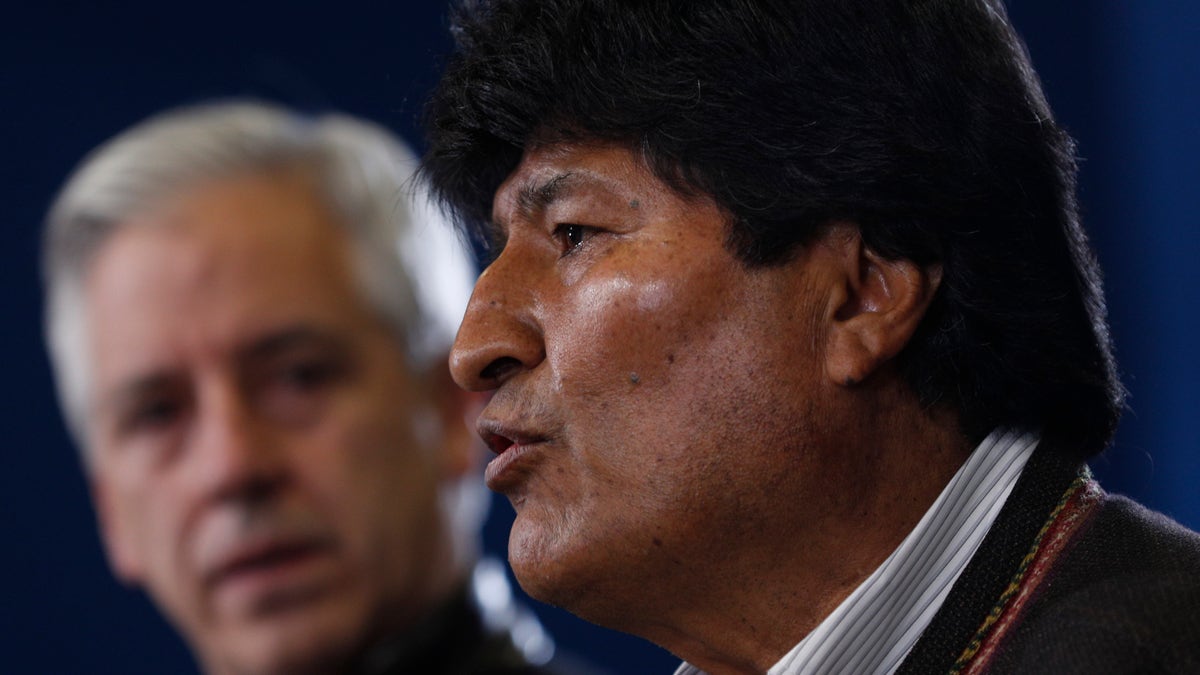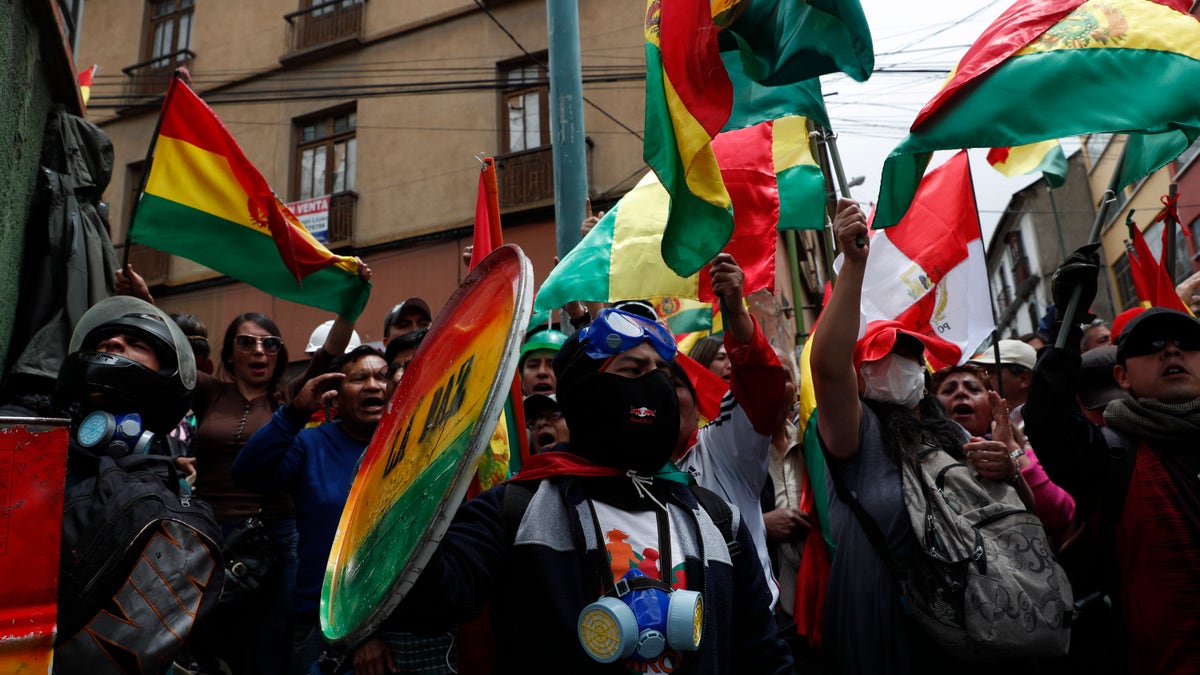Fox News Flash top headlines for Nov. 9
Fox News Flash top headlines for Nov. 9 are here. Check out what's clicking on Foxnews.com
Police guards took the side of anti-government protesters in Bolivia Saturday, abandoning their posts outside the presidential palace in the capital La Paz.
The development underscores the grave threat to Bolivia's socialist President Evo Morales, who claimed victory in a disputed election Oct. 20, sparking outcry across the country. Three people have been killed in the subsequent protests and hundreds have been injured.
“A coup is underway,” Morales -- who has been in power since 2006 -- declared from his stronghold in the city of El Alto, just west of La Paz, according to the New York Times.

Bolivia's President Evo Morales speaks during a press conference at the military airport in El Alto, Bolivia, Saturday, Nov. 9, 2019. (AP Photo/Juan Karita)
The president was not in the palace when guards abandoned their watch and officials were evacuated, leaving only a military presidential guard. Protesters moved peacefully to the doors of the compound but later left the area.
The Organization of American States is conducting an audit of the election count. Findings are expected on Monday or Tuesday. The opposition, which has alleged vote-rigging, says it will not accept the results because they were not consulted about the audit plan.
Police units in some cities started protesting Friday, marching in the streets in their uniforms as anti-government protesters cheered them on from the sidewalks. Most observers agree that if Morales loses police protection, it will be virtually impossible for him to remain in power.
"We do not want to be indifferent. The police are joining their people," said one officer in the city of Santa Cruz, a stronghold for anti-Morales sentiment
Defense Minister Javier Zabaleta downplayed police protests, saying a “police mutiny occurred in a few regions.”
Military chief Gen. Williams Kaliman said Saturday the military had no plans to intervene.
BOLIVIA MAYOR DRAGGED THROUGH STREETS, HAS HAIR CUT BY PROTESTERS AS ELECTION VIOLENCE SWELLS
"We'll never confront the people among whom we live. We guarantee peaceful co-existence," Kaliman said. "This is a political problem and it should be resolved within that realm."
A list of demands from dissident police officers included better working conditions, the resignation of their commander and guarantees that they won't be used as a political "instrument of any government."
On Saturday evening, protesters forced out broadcasters at state-run Television Boliviana, leaving Morales without a key propaganda tool, according to the New York Times.

Anti-government protesters against the reelection of President Evo Morales gather just meters away from the presidential palace in La Paz, Bolivia, Saturday, Nov. 9, 2019. (AP Photo/Juan Karita)
In a news conference, Morales proposed a compromise — the four parties which received the most votes in the nine-candidate election should sit down with “an open agenda to pacify Bolivia.”
Main opposition leader Carlos Mesa, a former president, rejected that suggestion. "I have nothing to negotiate with Evo Morales, who has lost all grip on reality," Mesa said.
While appealing for dialogue, Morales has also accused his opponents of trying to overthrow Bolivia's rightful government.
CLICK HERE TO GET THE FOX NEWS APP
Morales, Bolivia's first indigenous president, had previously refused to accept the results of a referendum upholding term limits for the president. The country's constitutional court later ruled that term limits violated his right to run for office, and the electoral court accepted his candidacy for a fourth term.
After the vote, Morales declared himself the outright winner even before official results indicated he obtained just enough support to avoid a runoff with Mesa.
The Associated Press contributed to this report.









































